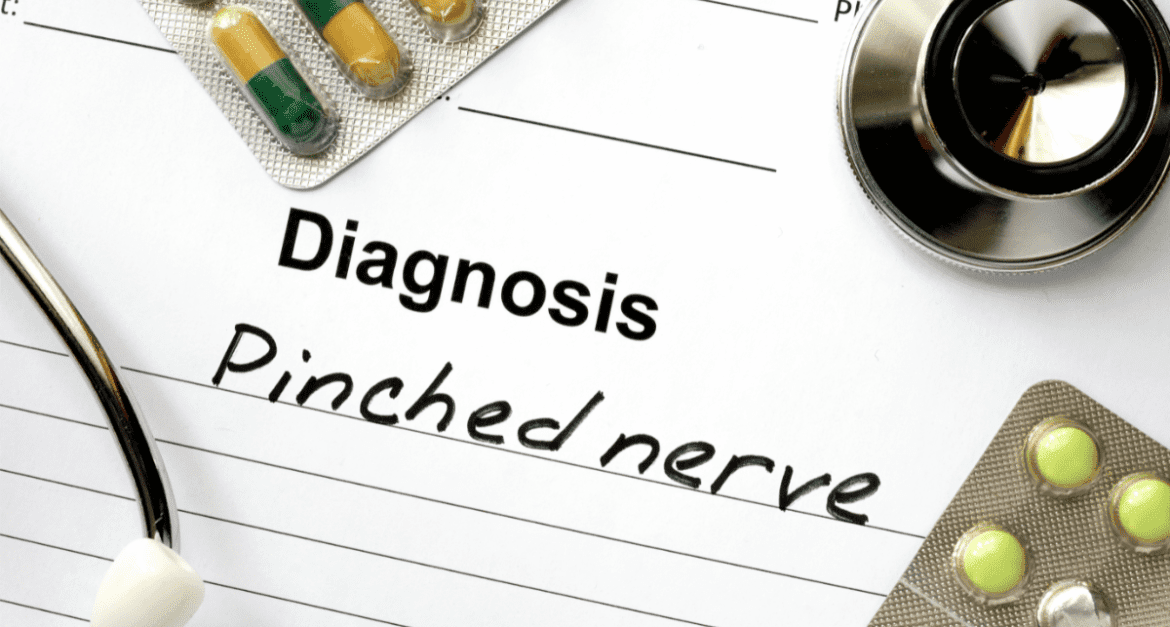We’re diving into a topic that’s close to our hearts here at Carolina Pain & Performance Center: pinched nerves. Whether you’ve experienced this uncomfortable condition yourself or know someone who has, understanding what’s happening beneath the skin can empower you to seek the right treatment and find relief. So, let’s unravel the mystery of pinched nerves together, exploring the symptoms and discovering practical solutions.
What is a Pinched Nerve?
Imagine your body’s nervous system as an intricate highway system, with nerves as the roads connecting every destination (body part) to the central hub (your brain). Now, picture a traffic jam on one of these roads caused by a blockade (pressure from surrounding tissues). This blockade disrupts the smooth travel of nerve signals, leading to the discomfort we know as a pinched nerve.
Recognizing the Symptoms
Pinched nerves can sneak up on you, often starting as a mild nuisance before escalating into more severe pain or discomfort. Here are some telltale signs that you might be dealing with a pinched nerve:
- Numbness or Decreased Sensation in the area served by the nerve.
- Sharp, Aching, or Burning Pain, which may radiate outward.
- Tingling, Pins and Needles Sensations (paresthesia), often described as the area “falling asleep.”
- Weakness in the muscles served by the nerve, affecting your ability to perform certain movements.
If these symptoms sound familiar, it’s crucial to listen to your body. Ignoring these warning signs can lead to prolonged discomfort or even long-term damage.
Navigating Towards Solutions
Fear not! While a pinched nerve sounds daunting, there are plenty of roads leading to relief. Here are some steps you can take to ease the discomfort and encourage healing:
- Rest the Affected Area – Sometimes, simply giving your body a break can alleviate pressure on the nerve.
- Adjust Your Posture – Be mindful of your posture, especially if you spend long hours at a desk or performing repetitive movements.
- Exercise – Gentle stretching and exercises can strengthen the muscles around the nerve, relieving pressure.
- Cold and Heat Therapy – Alternating between ice packs and heat can reduce inflammation and soothe pain.
- Over-the-Counter Pain Relievers – Medications like ibuprofen can reduce inflammation and pain, providing temporary relief.
Seeking Professional Help
While home remedies can offer relief, it’s essential to consult with professionals if your symptoms persist or worsen. Here at Carolina Pain & Performance Center, we specialize in diagnosing and treating conditions like pinched nerves. Our team can offer tailored advice and treatments, ranging from physical therapy to more advanced interventions, ensuring you find the relief you deserve.
The Road to Recovery
Dealing with a pinched nerve can be a frustrating journey, but it’s not one you have to travel alone. Understanding your symptoms and exploring effective solutions are the first steps toward recovery. Remember, our bodies have an incredible ability to heal, especially with a little help and guidance.
If you’re navigating the challenges of a pinched nerve, we’re here to light the way to better health. Don’t hesitate to reach out to us at Carolina Pain & Performance Center. Together, we can tackle this roadblock, ensuring you’re back to feeling your best in no time.
Remember, every journey starts with a single step—or in this case, a single call. Let’s embark on this journey to wellness together. Your path to a pain-free life is clearer than you think!


